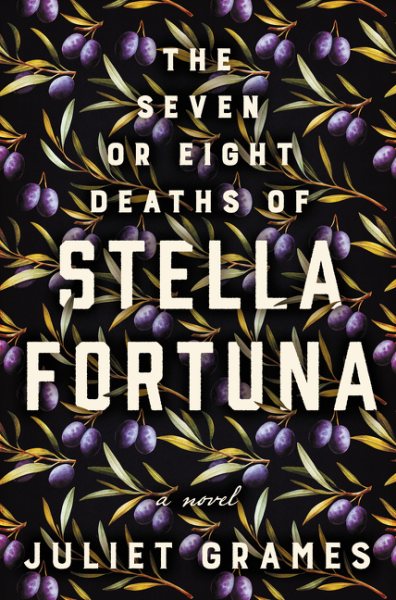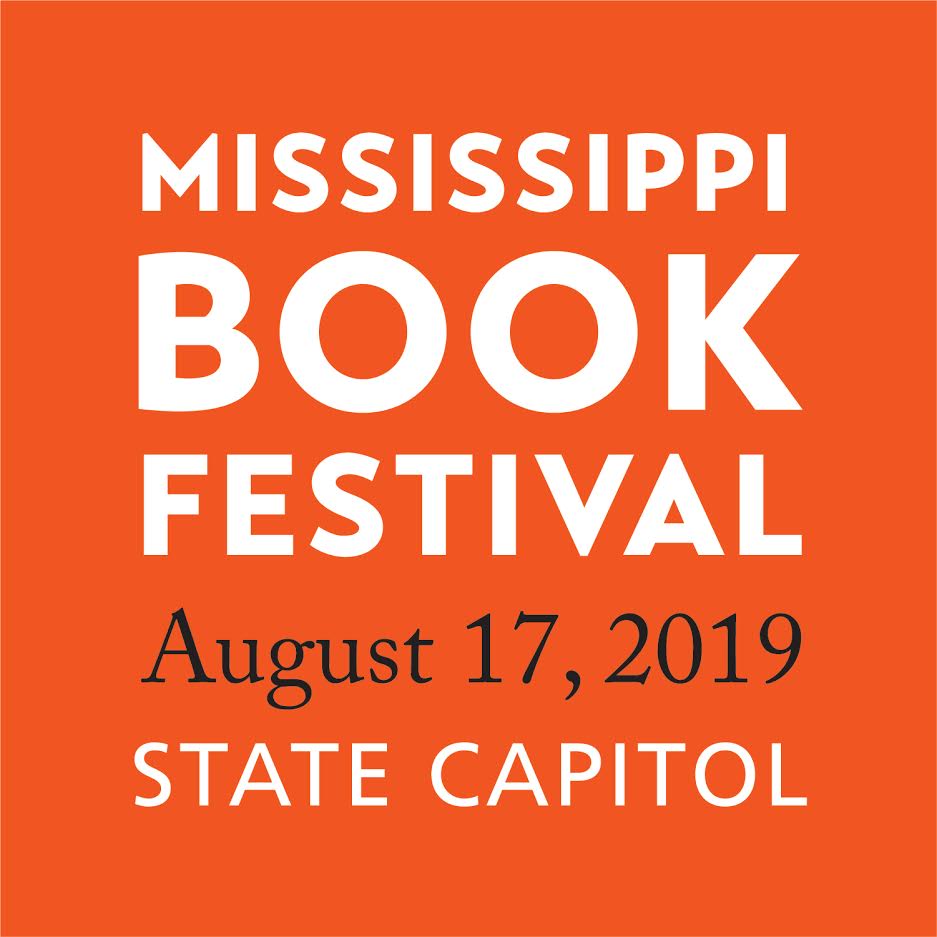Interview by Jana Hoops. Special to the Clarion-Ledger Sunday print edition (July 21)
“Author” is a new title for Juliet Grames, associate publisher and curator of the Solo Crime imprint for HarperCollins. With the publishing of her debut novel The Seven or Eight Deaths of Stella Fortuna, Grames joins the ranks of the hundreds of writers whose works she has helped become real books.
 Growing up in a tight-knit Italian family living in Connecticut, Grames loosely borrows from some of her own experiences as she shares the tale of the indomitable Stella Fortuna, who gave birth to 11 children even as she lived through at least seven–maybe eight–near-death experiences.
Growing up in a tight-knit Italian family living in Connecticut, Grames loosely borrows from some of her own experiences as she shares the tale of the indomitable Stella Fortuna, who gave birth to 11 children even as she lived through at least seven–maybe eight–near-death experiences.
Grames is looking forward to her appearance at the Mississippi Book Festival in downtown Jackson Aug. 17.
“I had the great good fortune of visiting Jackson in January 2018 and was profoundly moved by everything I saw and experienced, but especially by the literary culture of the city,” she said. “I am so honored and grateful to have been invited to the festival and to have the opportunity to be a tiny part of that rich literary culture.”
Since this is your debut book, please share a bit about your background.

Juliet Grames
I was born in Hartford, Conn., and grew up in the Farmington Valley. I knew I wanted to write books since I was a little girl–actually, my first attempt at a novel, when I was 6, was a story inspired by my grandmother, just like Stella Fortuna was. I’ve spent my entire career working with literature. My first job was at the public library, then I spent four years working at my hometown’s Borders Books, then a year at a literary agency before getting my start in book publishing editorial at places like John Wiley & Sons and The Overlook Press. But secretly I’m actually a devout amateur historian. I was a history major at Columbia, and spent a year studying history at Oxford.
As a book editor who has worked for Soho the past decade, you now hold the position of associate publisher and curator of the Soho Crime imprint. How does it feel to be on this “other side” of publishing? Was writing a book always part of your career dreams?
I originally got into publishing because I thought it would help me toward a writing career. For years, it seemed this plan had catastrophically failed, and I advised aspiring publishing professionals not to get into editorial if they wanted to write, because they would never be able to find bandwidth to nurture their own creative voice. But in the end, it wasn’t such a bad plan. Soho Press is a wonderful institution that has allowed me, and others, to pursue creative endeavors, and I believe my editorial training really helped me make my own novel into the best thing it could be.
This story is partly based on experiences in your own Italian-American family. Can you tell us a little about that?
The novel follows a girl born in Calabria, Italy, in the years after World War I through her childhood in a poor mountain village, emigration to the U.S. on the eve of World War II, courtship, family drama, and eight near-death experiences. It was inspired by my grandmother, a larger-than-life character and storyteller.
My grandparents emigrated from southern Italy in the 1930s and settled in Hartford, Conn. I grew up steeped in their culture–the food, the dialects, the storytelling, the music, the horticulture–and very proud of my immigrant roots. As I got older, I tried to find histories and literature about the Italian South so I could learn more, but was frustrated by how little there is. One reason I wanted to write this book was to try to capture the fascinating world of southern Italy, where so many Italian-Americans’ ancestors originated.
The story begins with Stella’s parents’ history and extends to Stella’s life at age 100. Along the way, readers we learn about Stella’s multiple brushes with death, raising her large family and her lifelong longing for her own independence. Please tell us briefly about these struggles that define her life.
Stella Fortuna’s eight near-deaths are the one piece of the plot I took wholly from reality. My grandmother had very similar misadventures over the course of her long life–experiences, I realized, which laid the groundwork for an allegory about how dangerous independence and self-actualization could be for women like my grandmother, like Stella, born into reduced circumstances in pre-war southern Italy, where women were not even citizens.
Life was especially dangerous when these women took risks to better their situations–to educate themselves or their children, to be ambitious about accruing money or property, to stand up to their controlling or abusive fathers or husbands. Stella struggles her entire life against the identity her world wants her to embrace–obedient wife and mother. Her stubborn independence and fierce sense of self never allow her to compromise, even when her resistance nearly cost her her life.
Even though Stella and her family moved to America when she was 19 years old, she never got over missing the Italian village of her childhood. How does that drive her outlook and expectations of a better life?
Stella is typical of many Italian emigrants of the first half of the 20th century in that she is deeply ambivalent about having to leave Italy. The tragedy of poverty and colonial exploitation meant that there were few work opportunities in places like Calabria, and people traveled thousands of miles to work abroad so they could feed their families. Many of the millions of Italians who arrived in the United States between 1900 and 1925 continued to think of Italy as home and intended to return there.
During my research, I found two very poignant forms of nostalgia at this great wave of migration: first, Italian-Americans like Stella and many other characters who never stopped loving and missing Italy; and second, in Italy, the descendants of the Italians who remained in towns that were emptied out by emigration, who feel kinship for the American cousins they never had a chance to meet.
In the end, the narrator tells readers that Stella was “not a woman of her time,” and that she was had “incredible will and strength, of charisma, of innate intelligence.” What can we learn from this tale today?
My main hope is that readers will walk away from the novel asking themselves about the lives and reputations of the “difficult” women who might have come before them–mothers or aunts or grandmothers of Stella’s generation who sometimes had to go to extreme or even ugly lengths to survive the hard years of the 20th century and to keep their families together. I believe our foremothers’ legacies are worth revisiting, and that when we question why these women were so “difficult,” we often find them to have been more heroic and multi-faceted than we could have guessed.
Juliet Grames will appear at the Mississippi Book Festival August 17 as a participant in the “Best Debut Novels of 2019” panel at 10:45 a.m. in State Capitol Room 113 and the “All About Soho Press” panel at 2:45 p.m. in State Capitol Room 201 H.



Comments are closed.